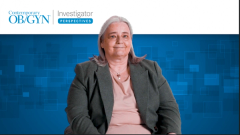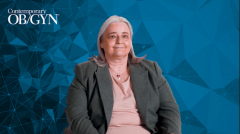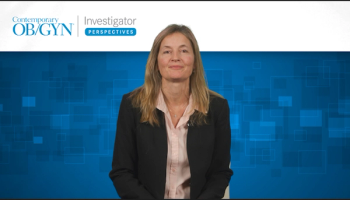
How New Pathways Are Easing Vasomotor Symptoms in Breast Cancer Care
A panelist explains that although hormone replacement therapy is contraindicated in patients with breast cancer due to recurrence risks, new nonhormonal treatments targeting neurokinin receptors in the brain offer promising relief for vasomotor symptoms without interfering with endocrine therapy.
Episodes in this series

Until recently, effective treatments for vasomotor symptoms in patients with breast cancer were very limited. Hormonal replacement therapy, commonly used to manage menopausal symptoms, is not an option for these patients because it increases the risk of cancer recurrence and works against the goal of endocrine therapy. Endocrine therapy aims to reduce hormone levels or block hormone receptors to prevent cancer growth, so adding hormones would counteract this effect. Even in women without breast cancer, hormonal replacement therapy raises the risk of developing the disease, making nonhormonal alternatives a critical need.
Some nonhormonal options, such as certain antidepressants, have been used to ease vasomotor symptoms, and complementary treatments such as acupuncture have shown benefits in some studies. However, none of these have proved to be truly effective or received regulatory approval specifically for patients with breast cancer receiving endocrine therapy. The challenge has been finding a treatment that manages symptoms without interfering with cancer treatment or causing additional risks. Progress has recently been made in this ongoing search with the development of therapies targeting specific brain pathways involved in temperature regulation.
Research has identified neurons in the hypothalamus that regulate body temperature and respond to changes in estrogen levels. Overactivation of these neurons, caused by altered signaling through certain neurokinin receptors, leads to the sudden hot flashes and night sweats experienced during menopause. New medications that block these receptors help restore normal activity in these neurons, allowing the body to better control temperature. These nonhormonal treatments offer a promising option to relieve vasomotor symptoms safely in patients with breast cancer, improving quality of life without compromising cancer therapy.
Newsletter
Get the latest clinical updates, case studies, and expert commentary in obstetric and gynecologic care. Sign up now to stay informed.







